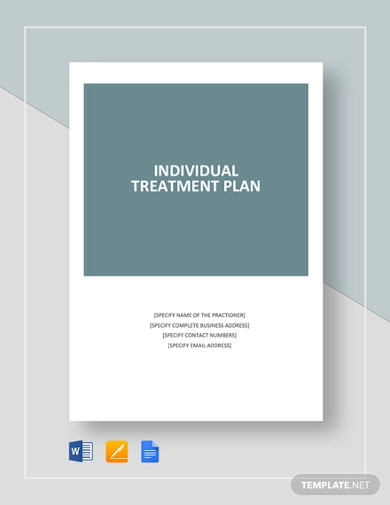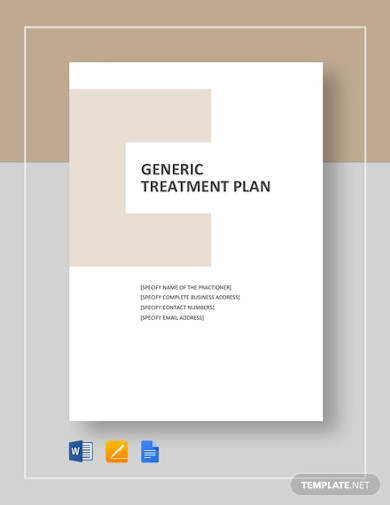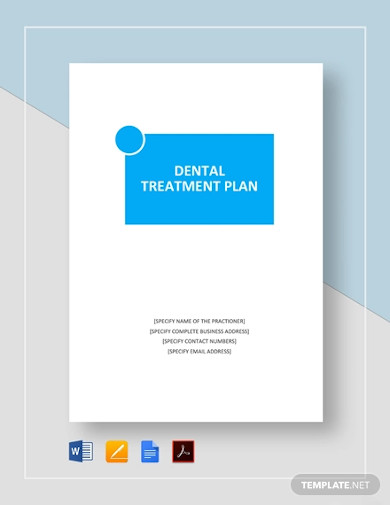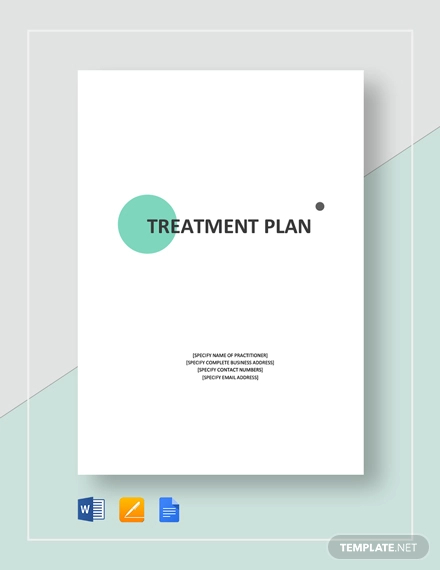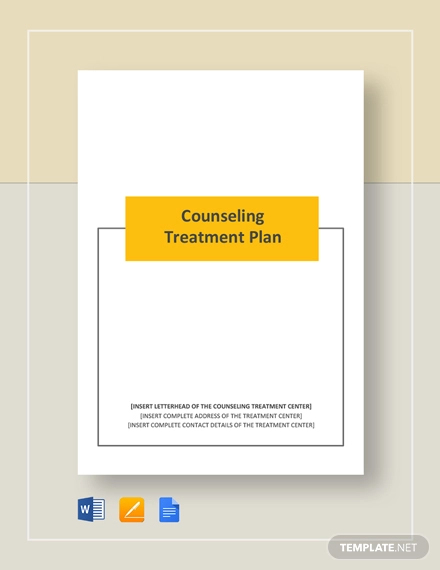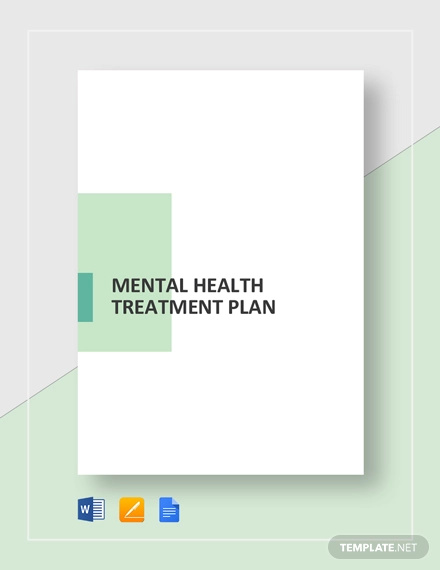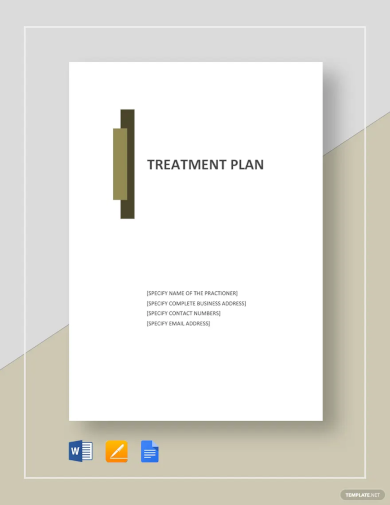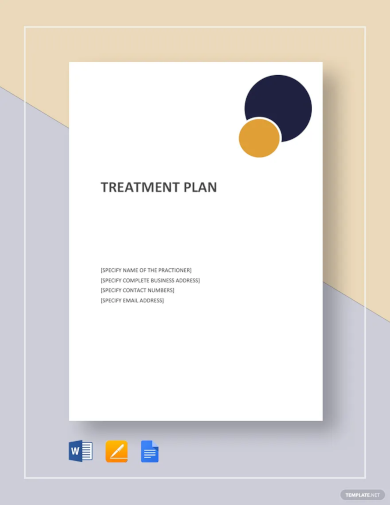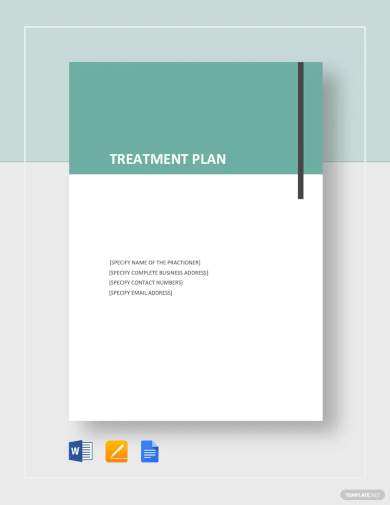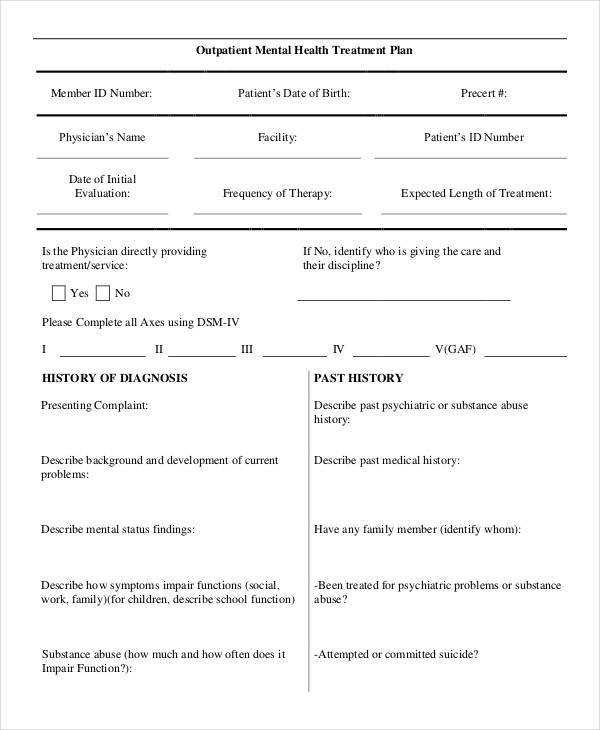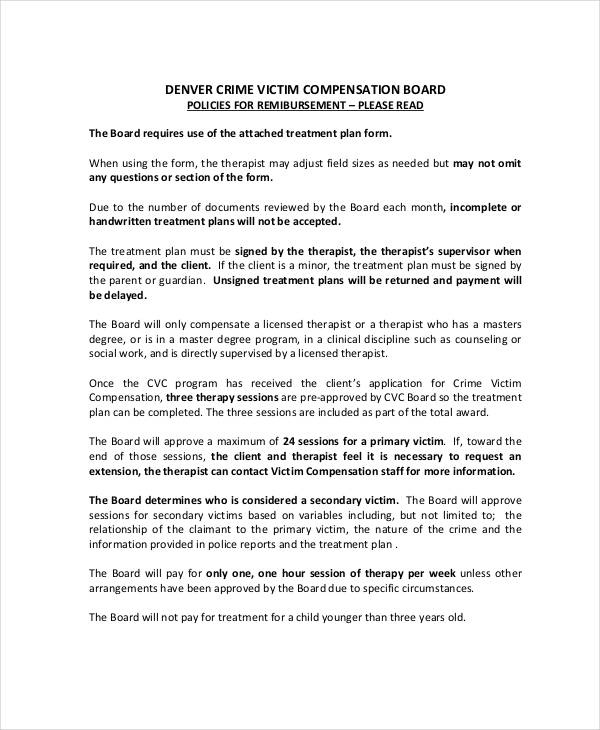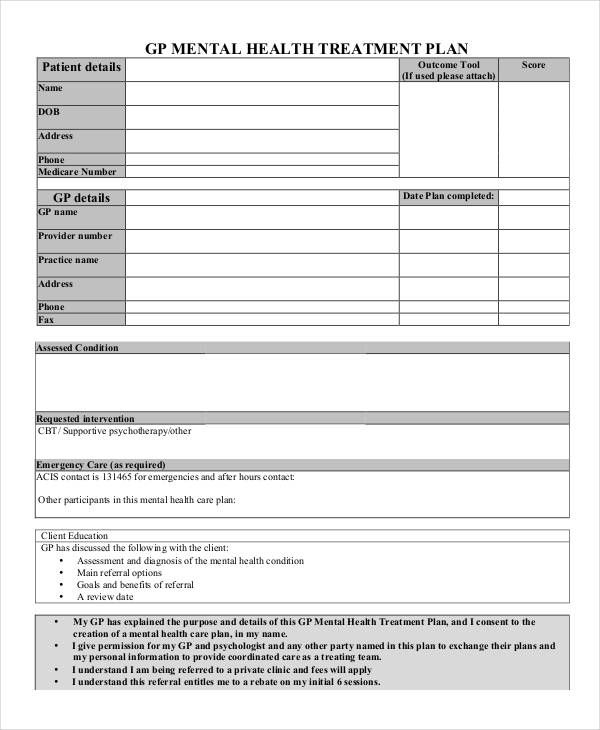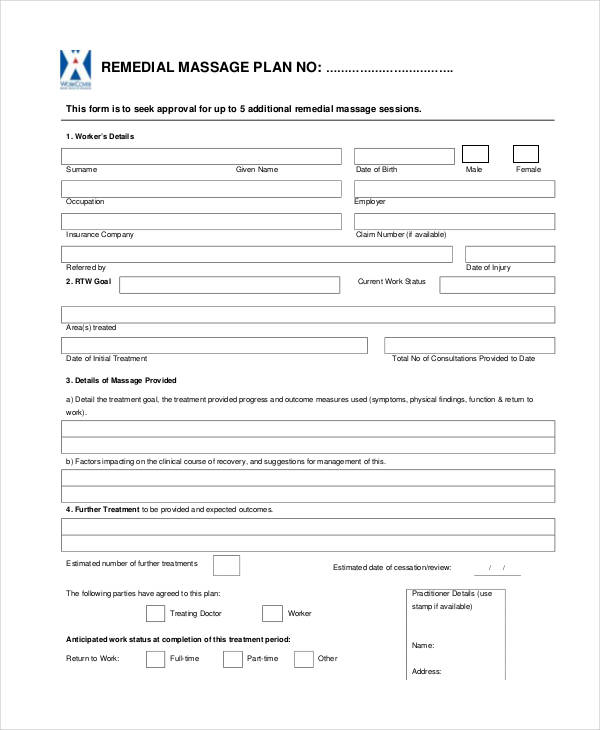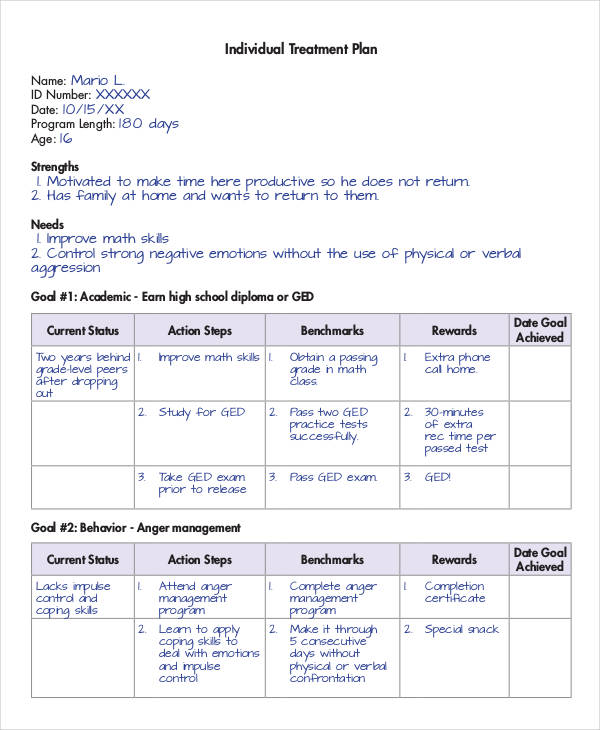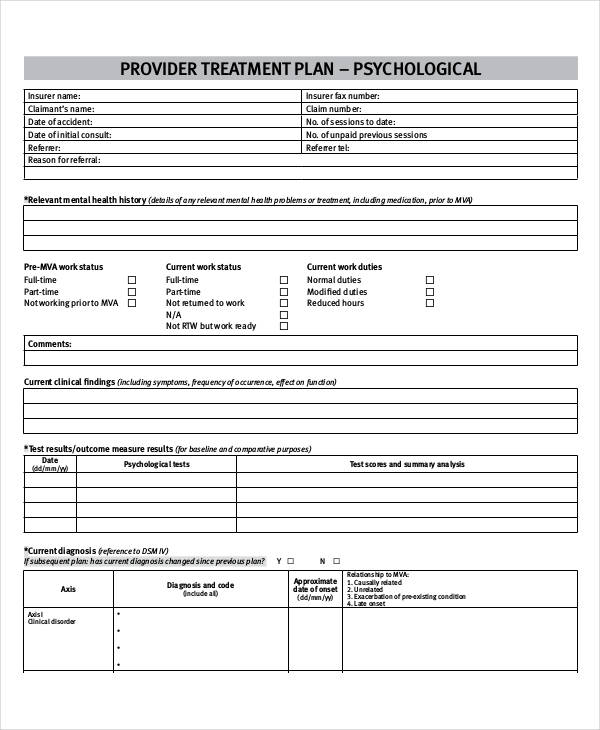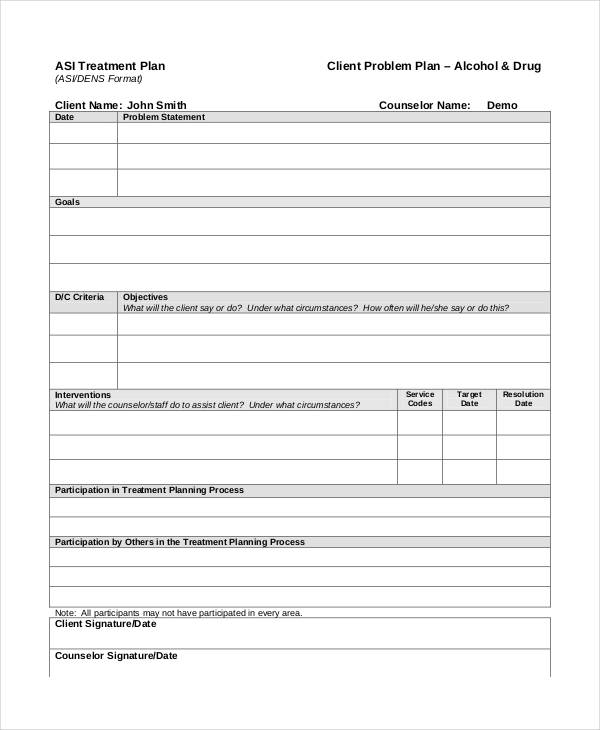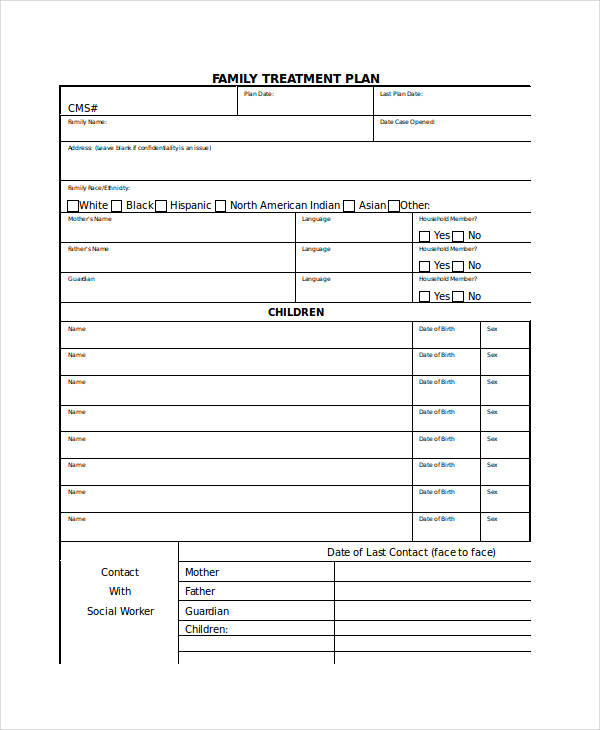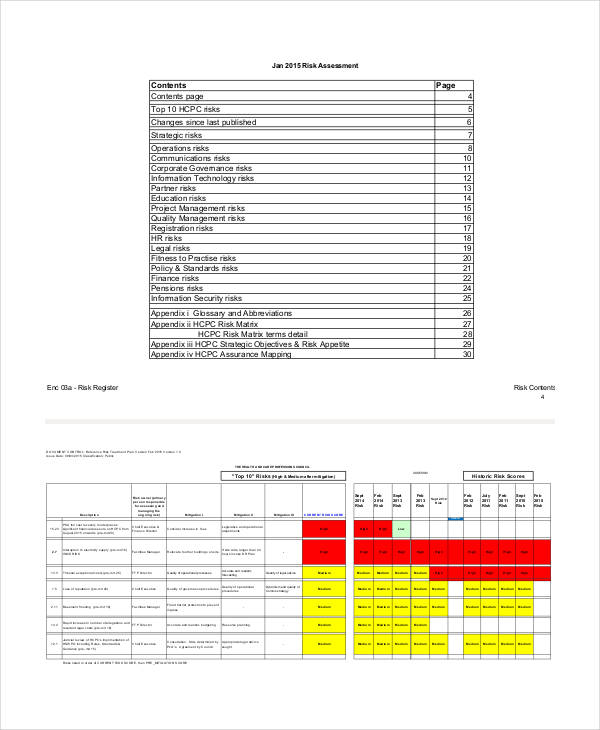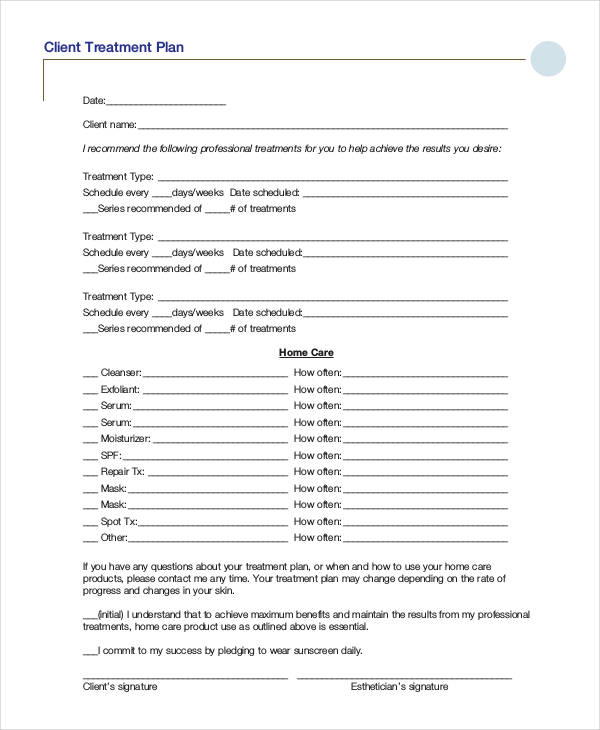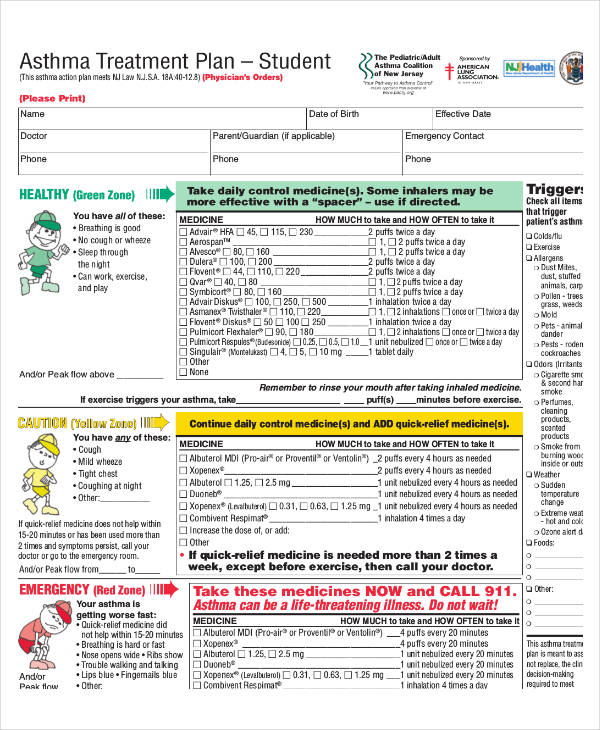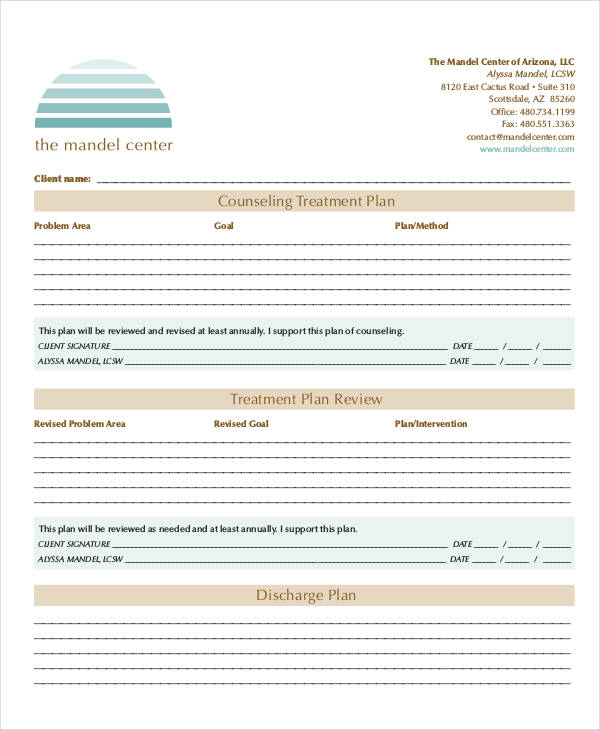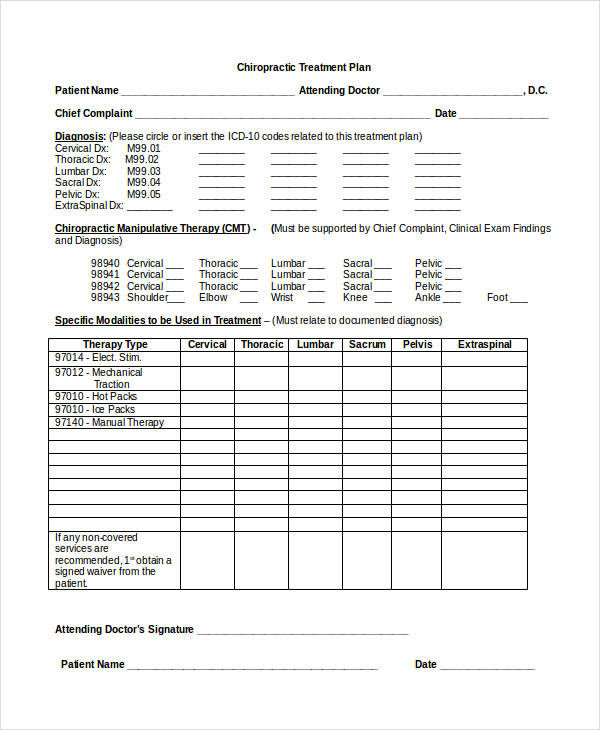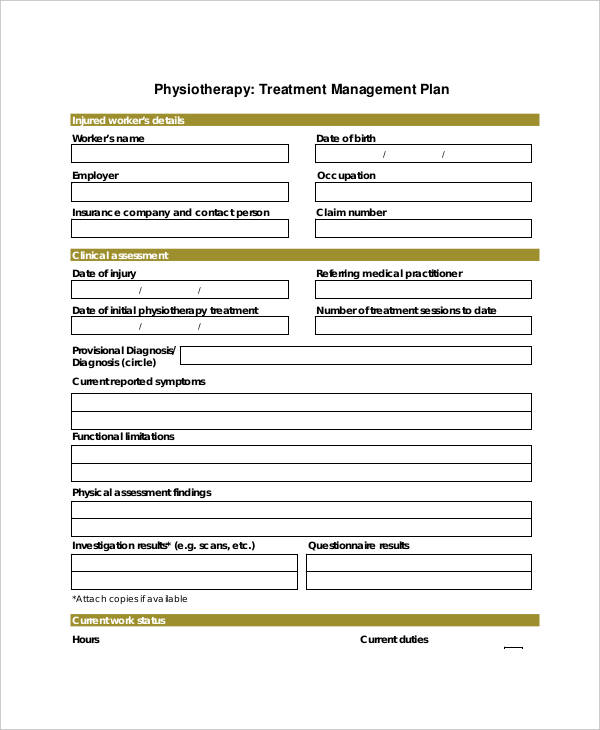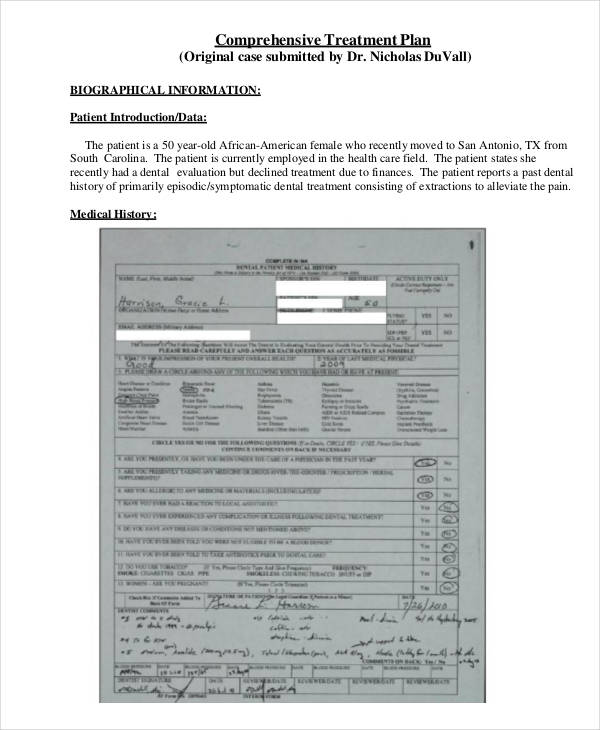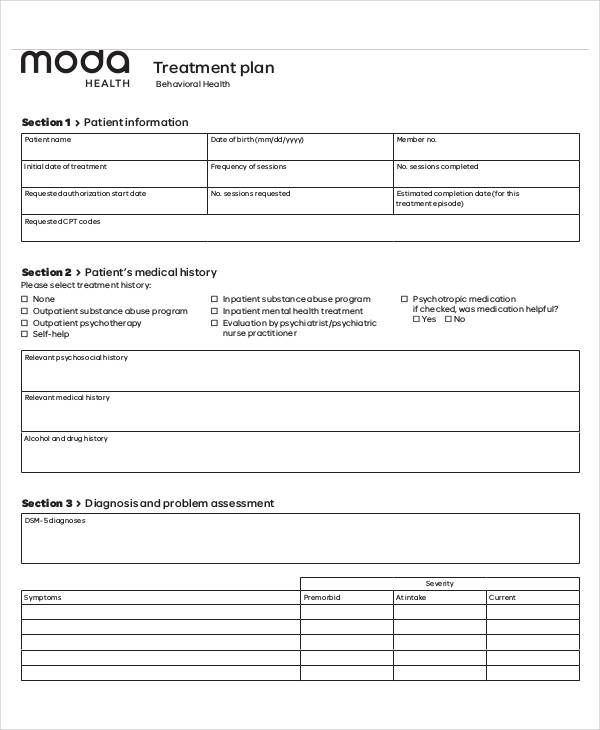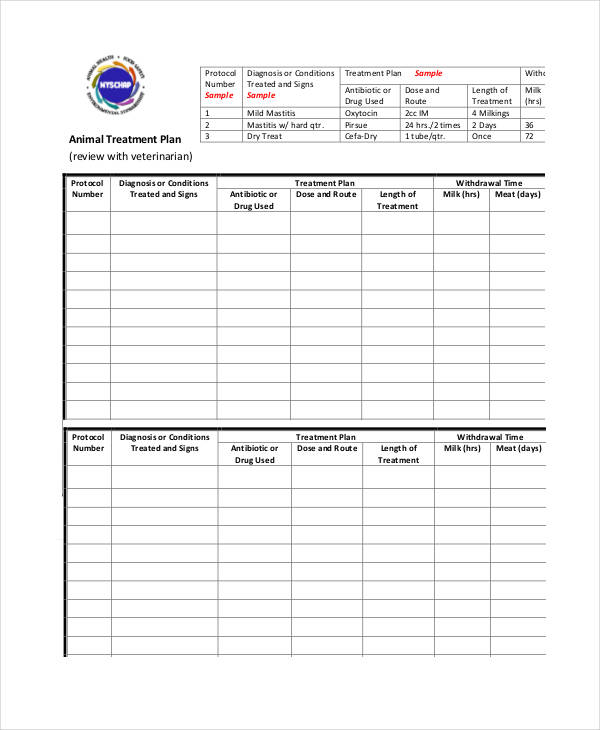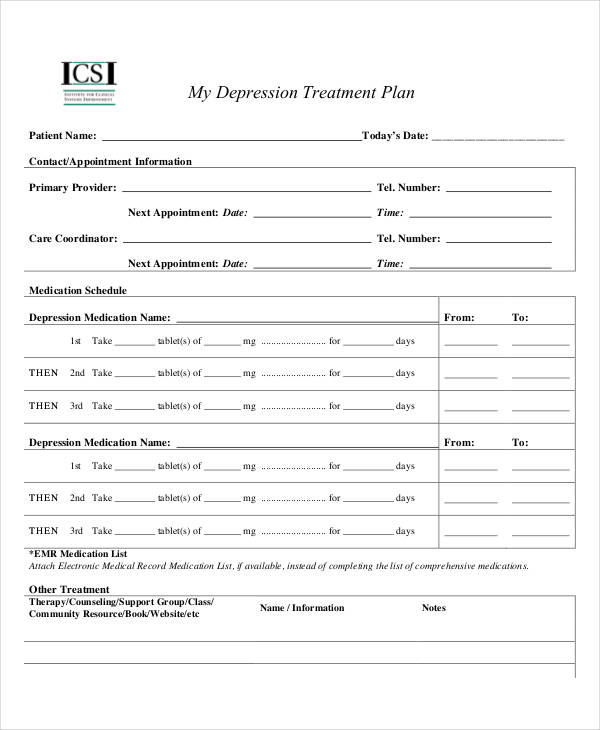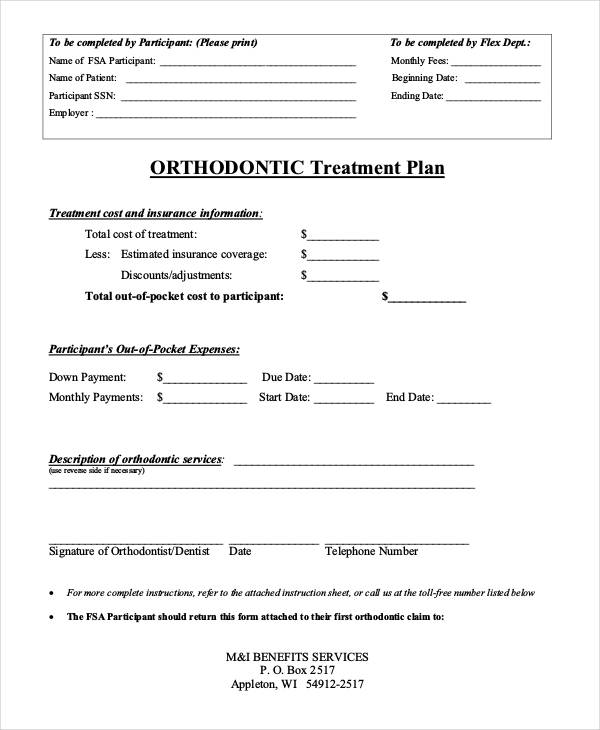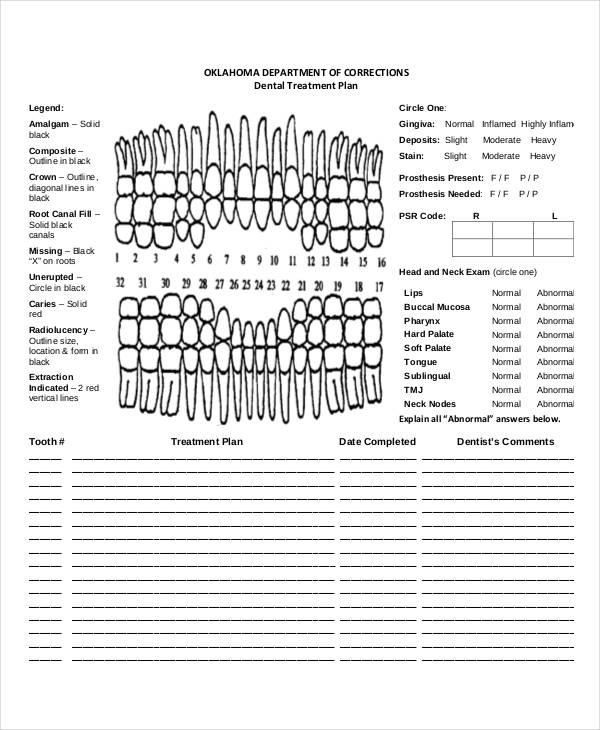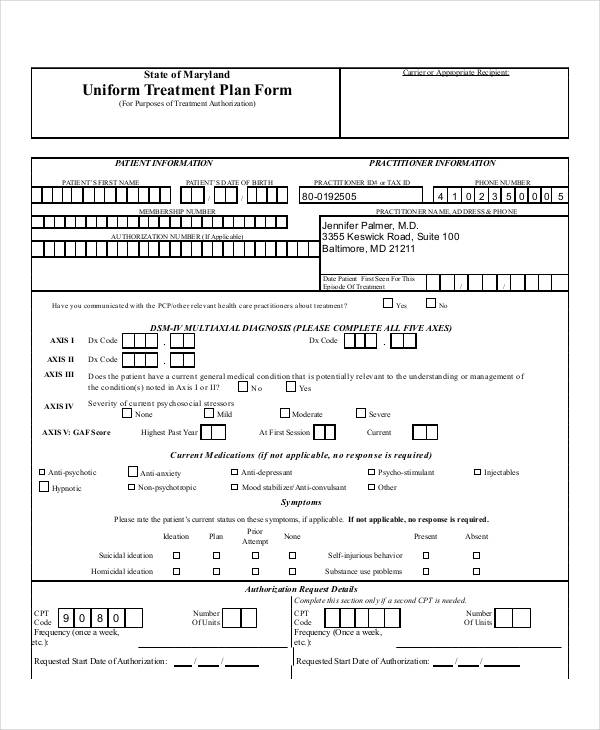30+ Treatment Plan Examples to Download
Quick, what’s the first thing you should do when you find yourself in a predicament? If you answered ‘come up with a plan,’ then you’re right on the money. Planning things out is a universal solution because it lays out practical steps that anybody can follow for a better outcome. A corporation will need a financial plan, teachers will require a lesson plan, and those in the medical field will find a treatment plan to be quite essential. That last one is what this article is all about. Those who want to learn more can look at the sample mental health treatment plans provided below. A treatment plan template may not necessarily be the best solution for everybody, but it does offer a lot of conveniences.
30+ Treatment Plan Examples
1. Individual Treatment Plan Template
2. Generic Treatment Plan Template
3. Skin Care Treatment Plan Template
4. Dental Treatment Plan Template
5. Treatment Plan Template
6. Counseling Treatment Plan Template
7. Mental Health Treatment Plan Template
8. Editable Treatment Plan Template
9. Free Sample Treatment Plan Template
10. Free Simple Treatment Plan Template
11. Outpatient Mental Health Plan
12. Mental Health Proposed Plan
13. GP Mental Health Plan
14. Remedial Massage Treatment Plan
15. Individual Treatment Plan
16. Provider Treatment Plan Sample
17. Addiction Severity Index Treatment Plan Sample
18. Family Treatment Plan Sample
19. Risk Treatment Plan Sample
20. Client Treatment Plan Example
21. Asthma Treatment Plan Example
22. Counseling Treatment Plan Example
23. Chiropractic Treatment Plan Example
24. Physiotherapy Treatment Plan Example
25. Comprehensive Treatment Plan Example
26. Behavioral Health Plan Example
27. Animal Treatment Plan Example
28. Depression Treatment Plan Example
29. Orthodontic Treatment Plan Example
30. Dental Treatment Plan Example
31. Uniform Treatment Plan Example
What Is a Treatment Plan?
A treatment plan is a documentation tool that medical practitioners can use as ‘blueprints’ to outline the services required by their patients. This is not only useful in treating physical ailments, but for those with mental health issues as well. Plans that concern mental health often highlight significant assessment data, while defining the key areas of concern. From there, it is only a matter of establishing concrete treatment goals. The number of professionals that make use of treatment plans include social workers, counselors, therapists, psychiatrists, and psychologists. In addition to using this document as blueprints, many also treat it like a professional report for the benefit of their patients.
Tips for Conducting an Effective Treatment Plan
Now the question on your mind would be regarding how to write a treatment plan. Remember that determining the treatment plan that fits best for any given patient is a long process of trial and error, one that can involve extensive medical history screening and other processes. If taking a look from the examples of addiction treatment plans and other sample treatment plans weren’t enough for you, then perhaps the following tips can help you out.
Identify the Problems and Set Goals
Ask questions. Determine the underlying problems connected to your client’s health problem. Create an outline of the problems and identify what problem interfered the most with his/her life, and how these problems affected his/her health. Set goals according to the problems the client has shared with you.
Explore the Options Available
Ask your client what works best for him and what doesn’t. Ask what he thinks about the different treatment options you are trying. Your client also needs to participate in coming up with a decision criteria especially on what treatment options to try. Both of you should work on achieving your goals.
Discuss the Patient’s Support Network
Clients also need other people to support them other than themselves. A family strategic plan may come in handy, along with support from friends and other loved ones. Like other people, your clients also need to have other people to support them in whatever they are going through.
Monitor Outcomes and Track Progress
Having goals means having desired outcomes. You need to check from time to time if you and your client have met the outcomes you both desired from the start of your treatment plan. Evaluate your client’s progress regularly. Set criteria for tracking progress, and check the treatments your client has undergone and how it affected him/her. If you can, write your findings down in an accessible progress note.
FAQs
What Should a Treatment Plan Include?
Any treatment plan, even a treatment plan for depression, for example, should include details like the patient’s personal timeline and psychological history. Then it should define the problem or ailment before describing the prescribed treatment. From there, the plan must include a timeline for the treatment’s progress and a list of high-priority treatment goals. Last would be important milestones and objectives.
Why are the Advantages of Using a Treatment Plan?
One advantage is that it guides both the therapist and the client in terms of treatment. Another would be the fact that it reduces the risk of fraud and unintentional harm to clients. Last but not least, it ensures that the consulting services rendered are documented.
What Is the Goal of a Treatment Plan?
Treatment plan goals and objectives would include helping counselors keep a tab on the progress of a patient’s treatment. It plays an important role in guiding a patient towards reaching his/her goals.
Regardless if you decide to create a treatment plan on your own or choose from our selection of templates, you’re guaranteed amazing results out of your time spent reading this article. Never again will you struggle to find the right kind of free printable treatment plan template or be at a loss on how to come up with a counseling treatment plan. So don’t waste any more time; act now and get the best outcome possible!



